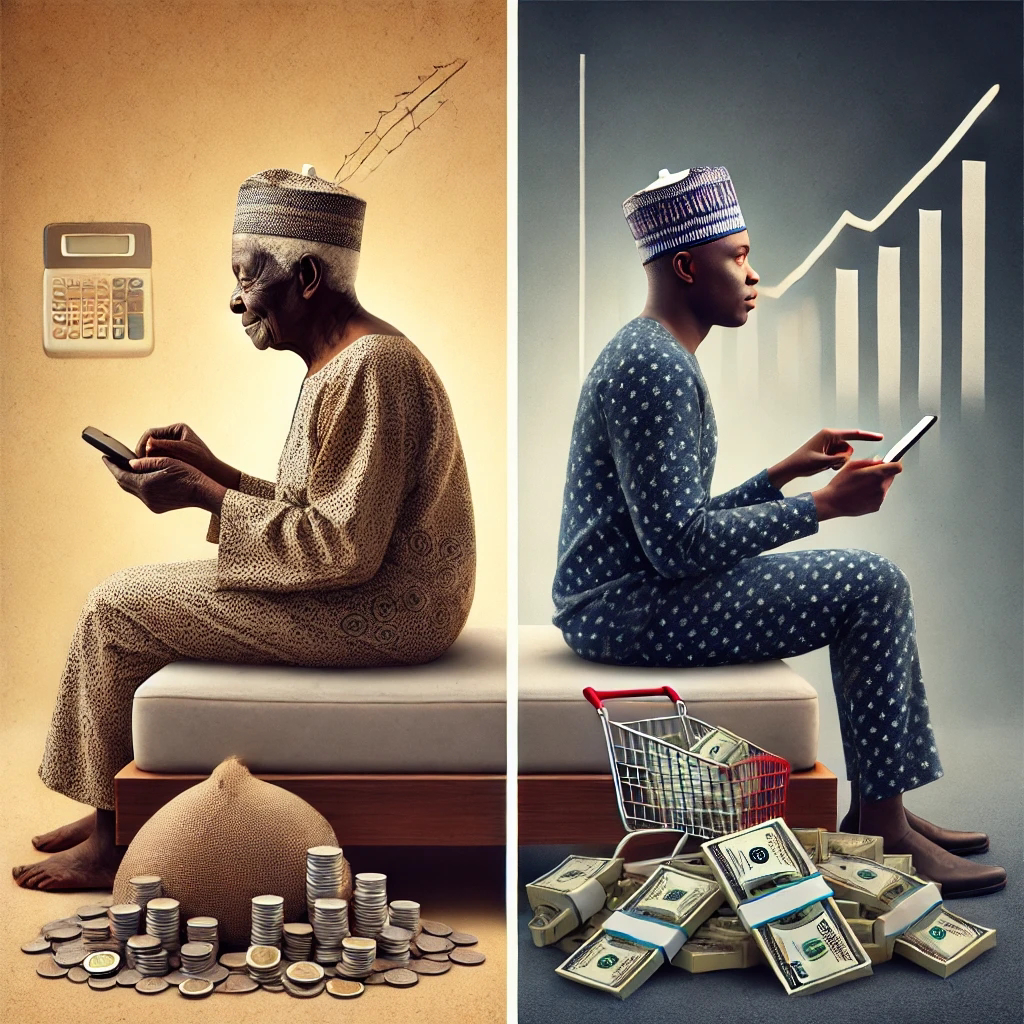S1E1: The Village Project
Come closer friends, and let me tell you a tale. Tonight we write of Femi.. Ah Femi! His dream was simple—to build a grand house in his village so that everyone would see his success. And he did. A beautiful house, big and strong. But years passed, and the house remained empty, while Femi struggled to pay rent in the city.
But that’s not all. For you to understand this story you must also know the tale of The Latecomer:
Daniel waits for everyone to make money from an investment before joining as his way of making sure it’s a “safe investment”. He always waited. When stocks were cheap, he was afraid. When crypto was low, he was unsure. But when prices rose, he rushed in—only to lose all his money.
You see, By then, the opportunity was gone, and he entered at the worst time. Do you now know the lesson here? Let me give you a clue…. Real investment is about growing wealth smartly, not chasing quick money, gambling, or impressing people.
This idea of investment is keeping you poor. Why? Because investment means different things to different people based on their knowledge, mindset, etc. and There are often bad investment habits that keep them poor
Investment is the act of allocating money into assets, ventures, or financial instruments with the goal of generating profit over time.
Many Nigerians believe that investment only means buying land, starting a farm, or investing in oil and gas. While these investments can be profitable, for the GenZ, these traditional investments might be too slow because:
1. Require huge capital to start.
2. They are slow to appreciate and generate returns.
3. Can be difficult to sell or liquidate when cash is needed urgently.
Many Nigerians struggle financially not only because they don’t earn enough money but because of bad investment habits also. Here are some common habits that prevent wealth creation:
1. Keeping money in a savings account does not grow wealth. Inflation actually reduces the purchasing power of savings over time.
2. Nothing is free!!! Any investment promising guaranteed high returns with no risk is a scam.
3. Many people buy land in remote areas, hoping for future appreciation. Building a house in the village that stays empty is not an investment.
4. Don’t invest in things you don’t understand (forex, crypto, stocks) and lose money. Investing blindly based on hype leads to losses.
5. Don’t put all your money In one investment (e.g., real estate or oil and gas). This only increases your risk. If that asset class collapses, all your money is gone.
6. Don’t spend more than you earn. Buying expensive cars, designer clothes, and unnecessary gadgets before investing only drains wealth.
7. You don’t need millions to invest. Start small and grow gradually instead of waiting for a large amount of money .
8. Sticking only to traditional investments limits financial growth. Don’t ignore all tech-driven investments that offer faster and higher returns.
9. Many investments in Nigeria (land, houses, farming) take years to appreciate. If an emergency happens, you may struggle to get cash.
10. Many Nigerians fear investing in anything except fixed deposits and traditional businesses and avoid risk completely. Low-risk investments often give low returns that don’t beat inflation.
Instead of sticking ONLY to these traditional investments, Gen Z investors can build lasting wealth by exploring faster, more liquid, and technology-driven opportunities in stocks, crypto, digital businesses, startups. And secure their financial future.
Follow us for more posts like this.. see you soon! 😉




Comments
Post a Comment